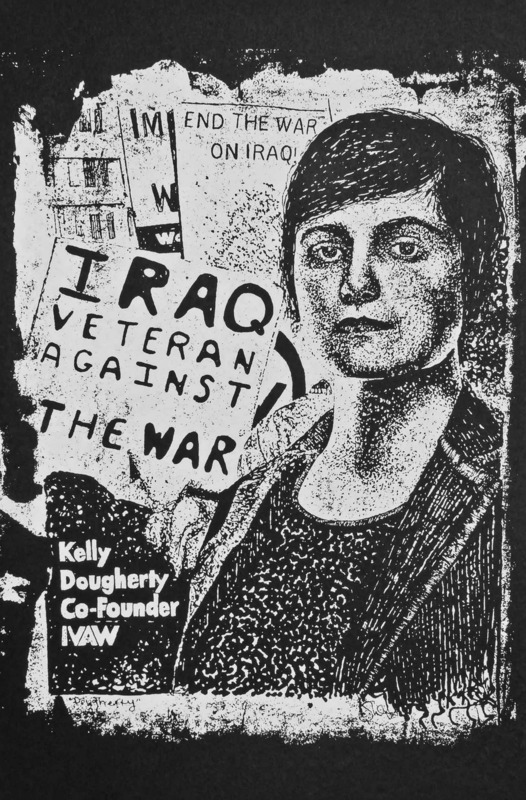Kelly Dougherty- Lessons from the Iraq War
Kelly Dougherty is a U.S. military veteran who served in the Army National Guard from 1996 to 2004. In December of 2006, she was interviewed by Dr. Betsy Brinson, an oral historian, about her experiences as a medic and MP who was deployed to Hungary and Croatia before serving in the Iraq war. Upon returning from Iraq, Dougherty became a co-founder of Iraq Veterans Against the War (now known as About Face: Veterans Against the War), an organization that aims to empower active duty service members and veterans of the Iraq War to use their voices and garner support for the removal of troops from Iraq.
While listening to Dougherty’s oral history interview, a key question emerges: How did Dougherty’s experiences as a young, white woman in the National Guard impact her understanding of the U.S. military, particularly its connection with broader systems of power in the U.S. and how this relates to the public perception of the military? Throughout her interview, Dougherty addresses this question by discussing systematic problems with the military through the lens of her unique experiences. She discovers that the U.S. military uses power and control to meet its goals that, although disguised as just causes, are at its core the weaponization and dehumanization of people to reinforce a bureaucratic and corporate system.
The following page will explore three specific critical issues as identified by Dougherty, as well as how her work through Iraq Veterans Against the War worked to address those issues:
- Targeted Recruitment Methods
- Challenges Faced by Women in the Military
- Mistreatment of Iraqi Civilians
*Content Warning: This page contains a discussion of topics including sexual assault, death, trauma, violence, and racism. Please take a moment to check in with yourself and reflect on whether continuing to explore this page would be supportive of your journey.
1. Targeted Recruitment Methods
2. Challenges Faced by Women in the Military
3. Mistreatment of Iraqi Civilians

